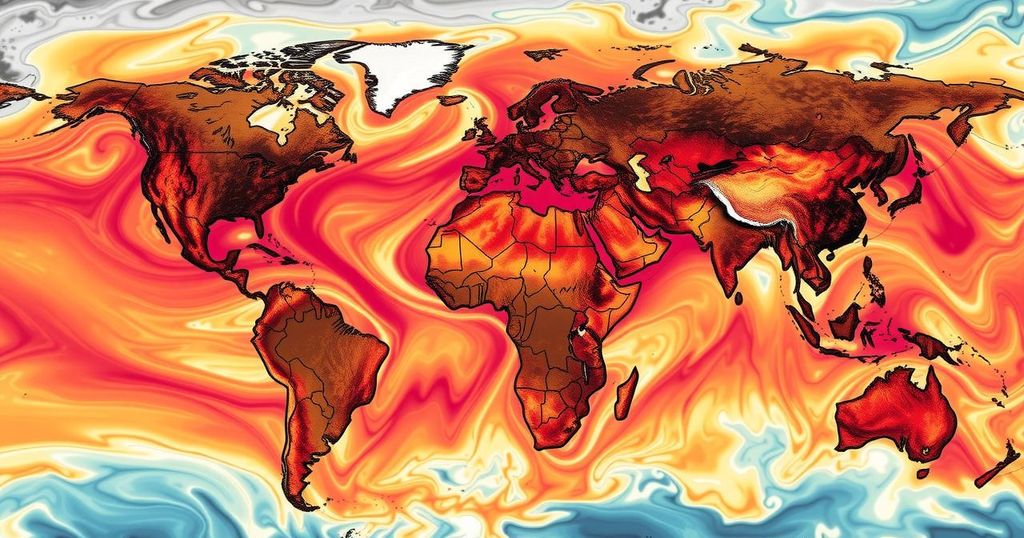Climate Change Results in 41 Extra Days of Dangerous Heat in 2024

In 2024, climate change resulted in an average of 41 extra days of dangerous heat globally, according to researchers from World Weather Attribution and Climate Central. This escalation in heat days correlates with increasing extreme weather events, marking 2024 as potentially the hottest year recorded. Significantly, 29 weather events linked to climate change caused over 3,700 deaths, indicating a pressing need for global action against climate change and its impacts.
In the year 2024, climate change has contributed to an alarming increase of 41 days of hazardous heat globally, significantly impacting millions. This information comes from researchers affiliated with World Weather Attribution and Climate Central, who assessed the connection between human-induced climate change and the frequency of extreme weather patterns. The findings underscore the unprecedented severity of climate events, marking 2024 as potentially the hottest year on record, exacerbating heat, droughts, and severe storms worldwide.
Throughout the globe, individuals faced intense heat, with regions like Northern California and Death Valley particularly affected. Temperatures soared in southern Europe, leading to significant disruptions, such as the temporary closure of the Acropolis in Greece. School closures were also common in various South and Southeast Asian nations due to extreme temperatures. According to the researchers, many localities experienced over 150 days of severe heat, with the poorest countries suffering disproportionately. The study clarifies that heat-related fatalities are often underestimated, making awareness and proactive measures vital to mitigate this issue.
The researchers also highlighted the critical situation regarding global temperatures, indicating that the planet is nearing the 1.5 degrees Celsius warming threshold outlined in the Paris Agreement. Notably, 29 extreme weather occurrences this year led to over 3,700 fatalities, with a significant majority linked to climate change. While the El Niño weather phenomenon contributed to some extreme conditions, it was found that climate change had a more profound impact on these events.
The study encourages urgent action to lower greenhouse gas emissions to prevent further climate extremes. Experts assert that the potential for devastation from climate events is not unavoidable; countries can implement strategies to adapt and mitigate the adverse effects of climate change. Overall, the findings of this report serve as a stark reminder of the pressing reality of our changing climate and the responsibilities that lie ahead for global leaders and communities alike.
The analysis revealing 41 additional dangerous heat days in 2024 results from collaborative efforts by World Weather Attribution and Climate Central, organizations dedicated to understanding the real-time impact of climate change. The increase in hazardous weather events is alarming, highlighting a trend of worsening climate conditions and their repercussions on public health, agriculture, and biodiversity. With relentless fossil fuel consumption contributing to climate change, the research indicates that both environmental and human health stand at significant risk, necessitating urgent and sustained global action to combat these trends.
In summary, the substantial increase in dangerous heat days due to climate change in 2024 highlights the urgent need for global action to address environmental issues. This year’s extreme weather events not only reaffirm the direct correlation between human activity and climatic disruptions but also emphasize the need for effective adaptation and mitigation strategies to safeguard vulnerable populations. Without immediate action, the situation is projected to worsen, with dire consequences for human and ecological systems worldwide.
Original Source: apnews.com






